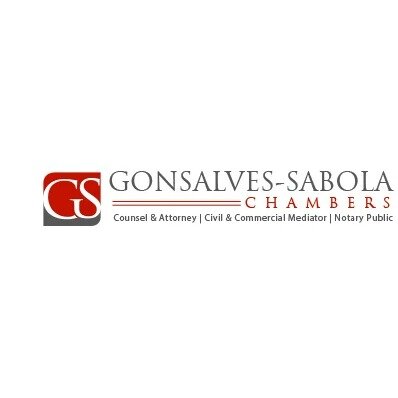Best Domestic Violence Lawyers in Bahamas
Share your needs with us, get contacted by law firms.
Free. Takes 2 min.
Free Guide to Hiring a Family Lawyer
Or refine your search by selecting a city:
List of the best lawyers in Bahamas
About Domestic Violence Law in Bahamas
Domestic violence in the Bahamas is recognized as a serious issue affecting the safety and well-being of individuals within family and intimate relationships. The Bahamian government has established laws aimed at protecting victims and holding perpetrators accountable. Domestic violence is not limited to physical abuse; it can also include emotional, psychological, sexual, and financial abuse. Legal frameworks exist to offer protection, ensure justice, and provide support for victims while aiming to deter potential offenders.
Why You May Need a Lawyer
If you are experiencing domestic violence, a lawyer can help you understand your rights and the legal options available to you. Situations where you may require legal assistance include obtaining a restraining order, filing for divorce or custody where domestic abuse is a factor, pursuing criminal charges against an abuser, or defending against false allegations of domestic violence. Legal advice is also crucial for understanding how to safely navigate the court system and any potential consequences of legal actions.
Local Laws Overview
The laws in the Bahamas regarding domestic violence focus on protection, prevention, and prosecution. The Domestic Violence (Protection Orders) Act is a key piece of legislation providing a means for victims to seek protective orders against abusers. These orders can include prohibiting the abuser from contacting or approaching the victim. Harassment, assault, and threats also fall under the scope of domestic violence, and the judiciary system provides strict penalties for such offenses. It is crucial to be familiar with these laws and the recourse available to victims through legal channels.
Frequently Asked Questions
What is considered domestic violence in the Bahamas?
Domestic violence includes physical harm, emotional abuse, sexual assault, intimidation, harassment, and financial control by a partner or family member.
What legal protections are available for victims?
Victims can apply for a Protection Order through the courts, which can restrict the abuser’s contact and proximity to the victim.
Who can file for a protection order?
Any person experiencing domestic violence or concerned about the threat of violence can apply for a protection order on their behalf or on behalf of someone unable to do so themselves, such as a child.
How do I apply for a protection order?
You can apply for a protection order at the Magistrate's Court in the Bahamas by filing the necessary forms and documentation detailing the abuse.
Is domestic violence a criminal offense in the Bahamas?
Yes, acts of domestic violence can result in criminal charges, including assault, battery, and harassment.
Can a lawyer represent me at no cost?
Some non-profit organizations provide pro bono legal services or support for individuals unable to afford legal representation. It is advisable to inquire about these resources.
Will the abuser automatically be arrested?
An arrest can occur if there is sufficient evidence of a criminal offense or if the abuser violates a protection order.
Can domestic violence affect child custody decisions?
Yes, courts consider domestic violence as a critical factor when determining child custody arrangements to ensure the child's safety and well-being.
What should I do if I am falsely accused of domestic violence?
Seek legal representation immediately to navigate the accusations, protect your rights, and ensure fair legal proceedings.
How can I support a friend or family member experiencing domestic violence?
Encourage them to seek legal advice, support them emotionally, and assist with finding local resources that offer protection and counseling services.
Additional Resources
Consider reaching out to the following organizations for support and guidance:
- The Bahamas Crisis Centre - offering counseling and support for victims of domestic violence.
- Bahamas Ministry of Social Services - providing various resources, including housing assistance and legal aid.
- Royal Bahamas Police Force - for immediate help and to report incidents of domestic violence.
Next Steps
If you need legal assistance, it's essential to act promptly. Contact a lawyer specializing in domestic violence cases to discuss your situation and understand your options. Keep records of all incidents of violence, seek support from trusted friends, family, or support groups, and ensure your safety while navigating legal proceedings. If you face an immediate threat, prioritize your safety by contacting law enforcement or a crisis hotline.
Lawzana helps you find the best lawyers and law firms in Bahamas through a curated and pre-screened list of qualified legal professionals. Our platform offers rankings and detailed profiles of attorneys and law firms, allowing you to compare based on practice areas, including Domestic Violence, experience, and client feedback.
Each profile includes a description of the firm's areas of practice, client reviews, team members and partners, year of establishment, spoken languages, office locations, contact information, social media presence, and any published articles or resources. Most firms on our platform speak English and are experienced in both local and international legal matters.
Get a quote from top-rated law firms in Bahamas — quickly, securely, and without unnecessary hassle.
Disclaimer:
The information provided on this page is for general informational purposes only and does not constitute legal advice. While we strive to ensure the accuracy and relevance of the content, legal information may change over time, and interpretations of the law can vary. You should always consult with a qualified legal professional for advice specific to your situation.
We disclaim all liability for actions taken or not taken based on the content of this page. If you believe any information is incorrect or outdated, please contact us, and we will review and update it where appropriate.
Browse domestic violence law firms by city in Bahamas
Refine your search by selecting a city.













